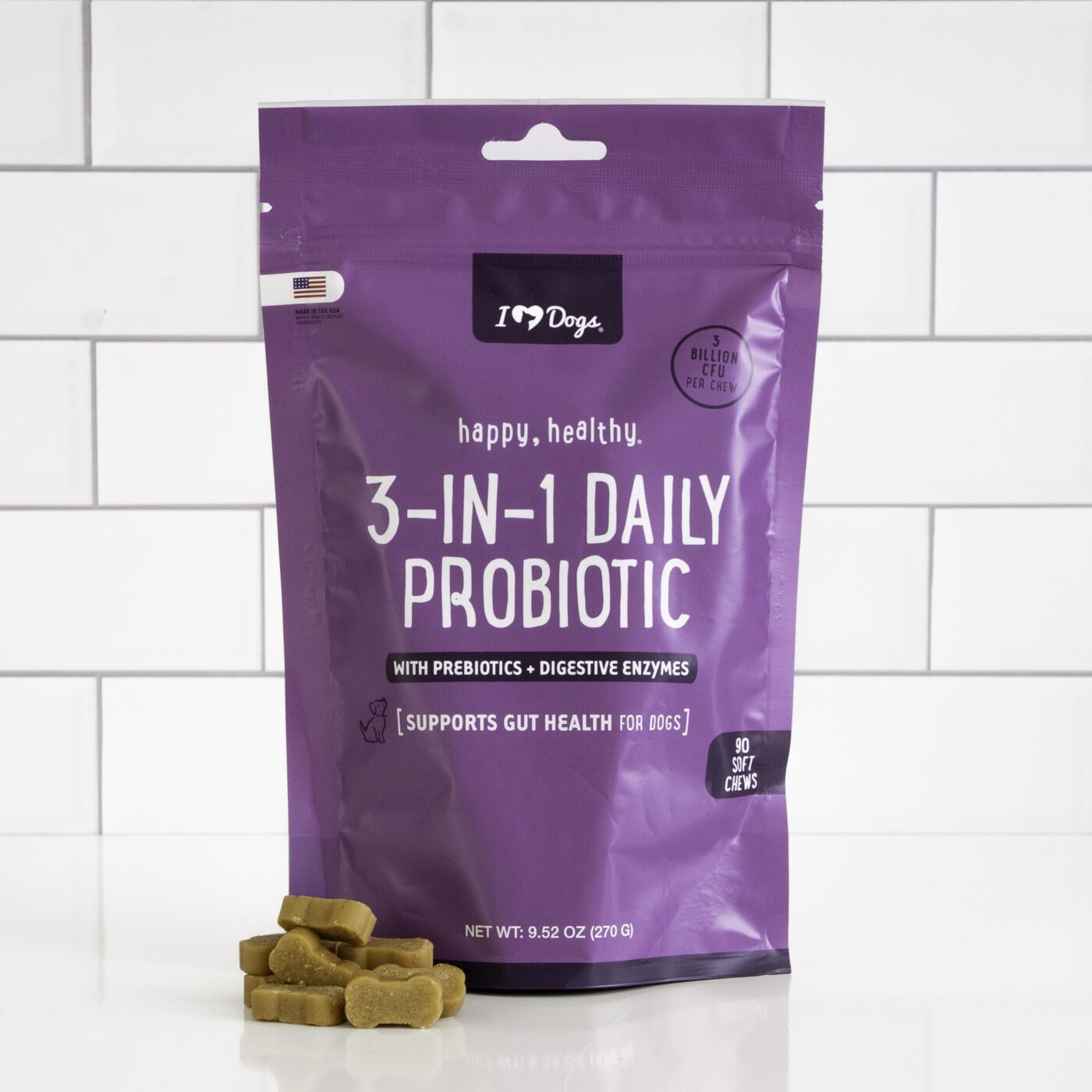
Probiotics have exploded in popularity in recent years. In fact, a survey done by the NIH shows that they’re now the 3rd most popular natural supplement taken by people.
Related: 12 Best Probiotics for Dogs
While most people and pets are first given probiotics for digestive reasons, recent human and animal studies have begun to show promise in use with patients suffering from allergies. Let’s review some of the evidence to-date:
What Do The Studies Say?
- A 2017 study by the University of Florida showed that participants given a probiotic suffered from fewer allergy-related symptoms during an 8 week experiment. [1] While most studies involve humans, not animals, there is a small but growing amount of research specific to dogs.
- A 2012 study published in the Journal of Veterinary Immunology and Immunopathology showed that the probiotic strain Lactobacillus rhamnosus significantly decreased allergen-specific Immunoglobulin E (IgE), which is an antibody released by the immune system in response to an allergen, and partially prevents clinical signs developing over a follow-up period of three years. [2]
- A 2015 Double-Blind, Placebo Controlled-Trial published by the NIH showed that the probiotic strain Lactobacillus sakei given for 2 months significantly reduced the disease severity of dogs diagnosed with canine atopic dermatitis. [3]
While the need for more research is certain, the results so far are very promising.
What Do Veterinarians Say?

Dr. Angie Krause reminds us that, “While probiotics don’t directly stop your dog from scratching, they do promote gastrointestinal health. Having a good population of healthy bacteria in the gut of your dog can drastically reduce and prevent allergies.”
Dr. Kathryn Primm advises, “Probiotics may hold promise in improving health for our beloved dogs, but be a savvy consumer. If it sounds too good to be true, it probably is and ALWAYS ask your own vet for advice on anything you feed your pets.”
Can Prebiotics & Digestive Enzymes Also Help Allergies?
Prebiotics are a crucial part of a successful probiotic routine, as this type of fiber is the food that “good bacteria” probiotics feed on. A good canine probiotic formula should also include prebiotics.
Related: Best Dog Probiotics Reviewed
Digestive enzymes are also an interesting component to healthy immune response. Human studies are starting to reveal that properly and fully digesting food may play an important in allergy response. Some canine probiotics, such as Pronine™ Flora, contain digestive enzymes as well.
To summarize the studies above, the results for alleviating canine allergic response are promising, but not yet conclusive. Considering the chance of an adverse reaction to giving your dog a probiotic is very low, probiotics are a worthy tool in your arsenal for fighting canine allergies.
Please visit here if you’d like to learn more about the dog probiotic chew recommended by iHeartDogs.
Sources & Citations
- Dennis-Wall J, Culpepper T, Nieves, Jr. C, et al. (2017). Probiotics (Lactobacillus gasseri KS-13, Bifidobacterium bifidum G9-1, and Bifidobacterium longum MM-2) improve rhinoconjunctivitis-specific quality of life in individuals with seasonal allergies: a double-blind, placebo-controlled, randomized trial 105(3)
- Marsella R, Santoro D and Ahrens K (2012). Early exposure to probiotics in a canine model of atopic dermatitis has long-term clinical and immunological effects, Journal of Veterinary Immunology and Immunopathology 146(2): 185-189.
- Kim H, Rther IA, Kim H, et al. (2015) A Double-Blind, Placebo Controlled-Trial of a Probiotic Strain Lactobacillus sakei Probio-65 for the Prevention of Canine Atopic Dermatitis, J Microbiol Biotechnol. 25(11): 1966-69.

 Toledo, United States.
Toledo, United States.